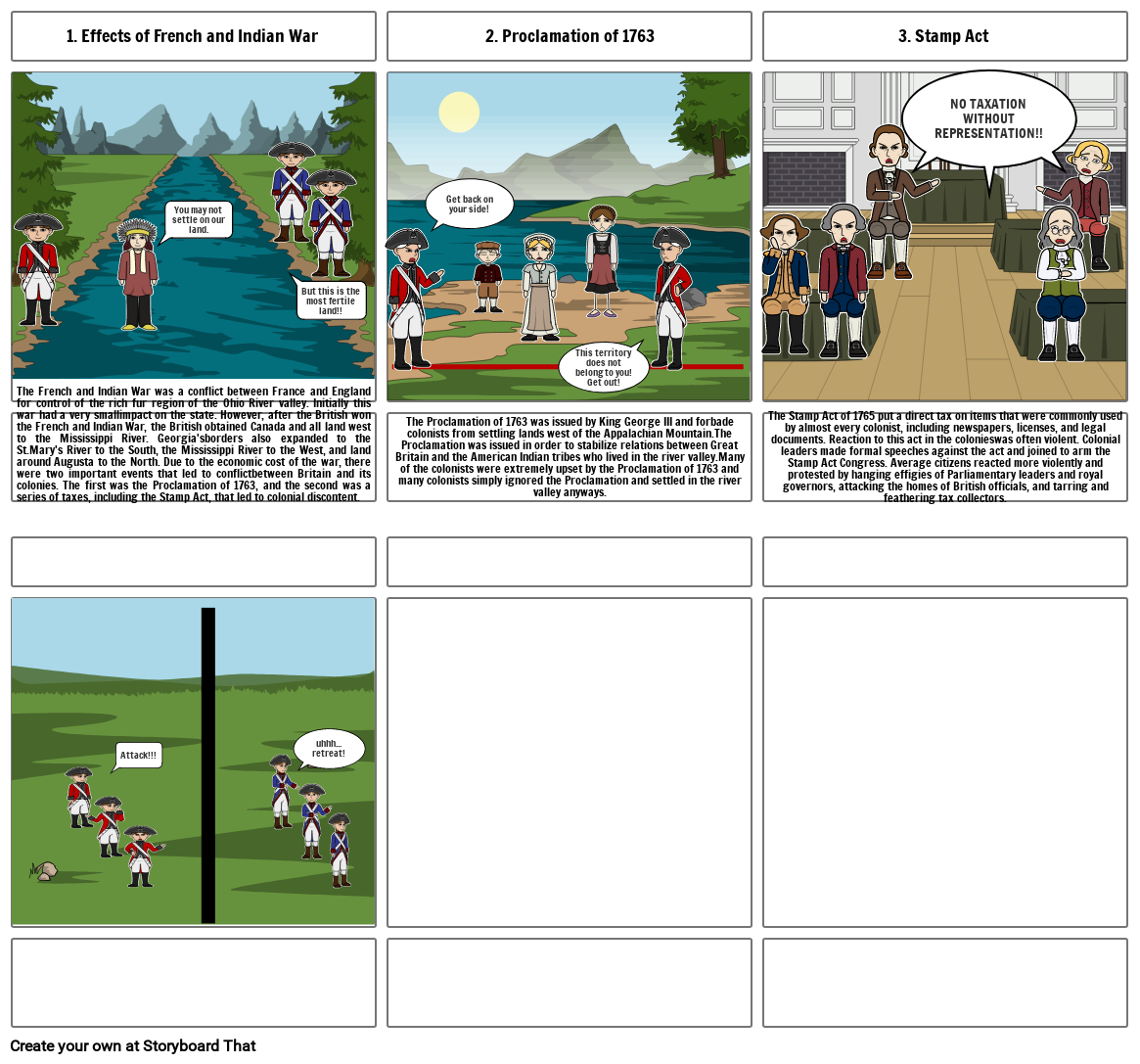american revolution

Storyboard Text
- 1. Effects of French and Indian War
- You may not settle on our land.
- But this is the most fertile land!!
- 2. Proclamation of 1763
- Get back on your side!
- This territory does not belong to you! Get out!
- 3. Stamp Act
- NO TAXATION WITHOUT REPRESENTATION!!
- The French and Indian War was a conflict between France and England for control of the rich fur region of the Ohio River valley. Initially this war had a very smallimpact on the state. However, after the British won the French and Indian War, the British obtained Canada and all land west to the Mississippi River. Georgia'sborders also expanded to the St.Mary's River to the South, the Mississippi River to the West, and land around Augusta to the North. Due to the economic cost of the war, there were two important events that led to conflictbetween Britain and its colonies. The first was the Proclamation of 1763, and the second was a series of taxes, including the Stamp Act, that led to colonial discontent.
- The Proclamation of 1763 was issued by King George III and forbade colonists from settling lands west of the Appalachian Mountain.The Proclamation was issued in order to stabilize relations between Great Britain and the American Indian tribes who lived in the river valley.Many of the colonists were extremely upset by the Proclamation of 1763 and many colonists simply ignored the Proclamation and settled in the river valley anyways.
- The Stamp Act of 1765 put a direct tax on items that were commonly used by almost every colonist, including newspapers, licenses, and legal documents. Reaction to this act in the colonieswas often violent. Colonial leaders made formal speeches against the act and joined to arm the Stamp Act Congress. Average citizens reacted more violently and protested by hanging effigies of Parliamentary leaders and royal governors, attacking the homes of British officials, and tarring and feathering tax collectors.
- 6. Siege of Savannah
- In reality, there were two Georgias during the war, The Patriot-held countryside and the British held cities of Augusta and Savannah. In October 1779, a joint force of French and Patriot troops attacked Savannah in hopesof retaking the city. This attack was a dismal failure. When the fighting ended, over 800 allied troops were killed compared to 18 British soldiers. Though the Siegeof Savannah was a failure for the Patriots, several American heroes emerged from the battle, one was Count Casimir Pulaski, a polish nobleman who was killed leading a charge.
- Attack!!!
- uhhh... retreat!
Over 30 Million Storyboards Created
No Downloads, No Credit Card, and No Login Needed to Try!
